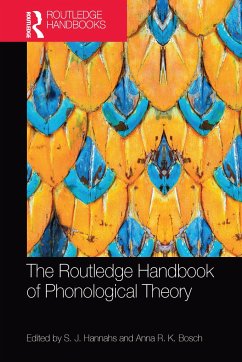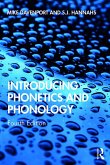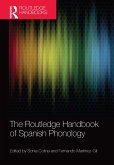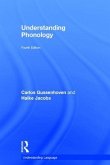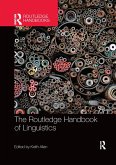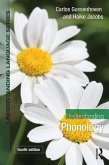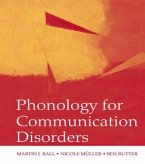The Routledge Handbook of Phonological Theory provides a comprehensive overview of the major contemporary approaches to phonology. Phonology is frequently defined as the systematic organisation of the sounds of human language. For some, this includes aspects of both the surface phonetics together with systematic structural properties of the sound system; for others, phonology is seen as distinct from, and autonomous from, phonetics. The Routledge Handbook of Phonological Theory surveys the differing ways in which phonology is viewed, with a focus on current approaches to phonology. Divided into two parts, this handbook:
covers major conceptual frameworks within phonology, including: rule-based phonology; Optimality Theory; Government Phonology; Dependency Phonology; and connectionist approaches to generative phonology;
explores the central issue of the relationship between phonetics and phonology;
features 23 chapters writtenby leading academics from around the world.
The Routledge Handbook of Phonological Theory is an authoritative survey of this key field in linguistics, and is essential reading for students studying phonology.
covers major conceptual frameworks within phonology, including: rule-based phonology; Optimality Theory; Government Phonology; Dependency Phonology; and connectionist approaches to generative phonology;
explores the central issue of the relationship between phonetics and phonology;
features 23 chapters writtenby leading academics from around the world.
The Routledge Handbook of Phonological Theory is an authoritative survey of this key field in linguistics, and is essential reading for students studying phonology.
"This is a great handbook. It's a thoughtful survey of contemporary phonological frameworks and of issues that arise in phonological argument. Many chapters disagree with each other in interesting ways, authentically reflecting the glories of current phonological debate. My advice? Read them all!"
Patrick Honeybone, The University of Edinburgh, UK
"This handbook is particularly valuable in that it presents not only articles dealing with issues that any phonological theory has to ... but it also offers succinct overviews of different models in the field. As such, it will be of interest to linguists from all kinds of backgrounds in the years to come."
Markus A. Pöchtrager, The University of Vienna, Austria
Patrick Honeybone, The University of Edinburgh, UK
"This handbook is particularly valuable in that it presents not only articles dealing with issues that any phonological theory has to ... but it also offers succinct overviews of different models in the field. As such, it will be of interest to linguists from all kinds of backgrounds in the years to come."
Markus A. Pöchtrager, The University of Vienna, Austria

